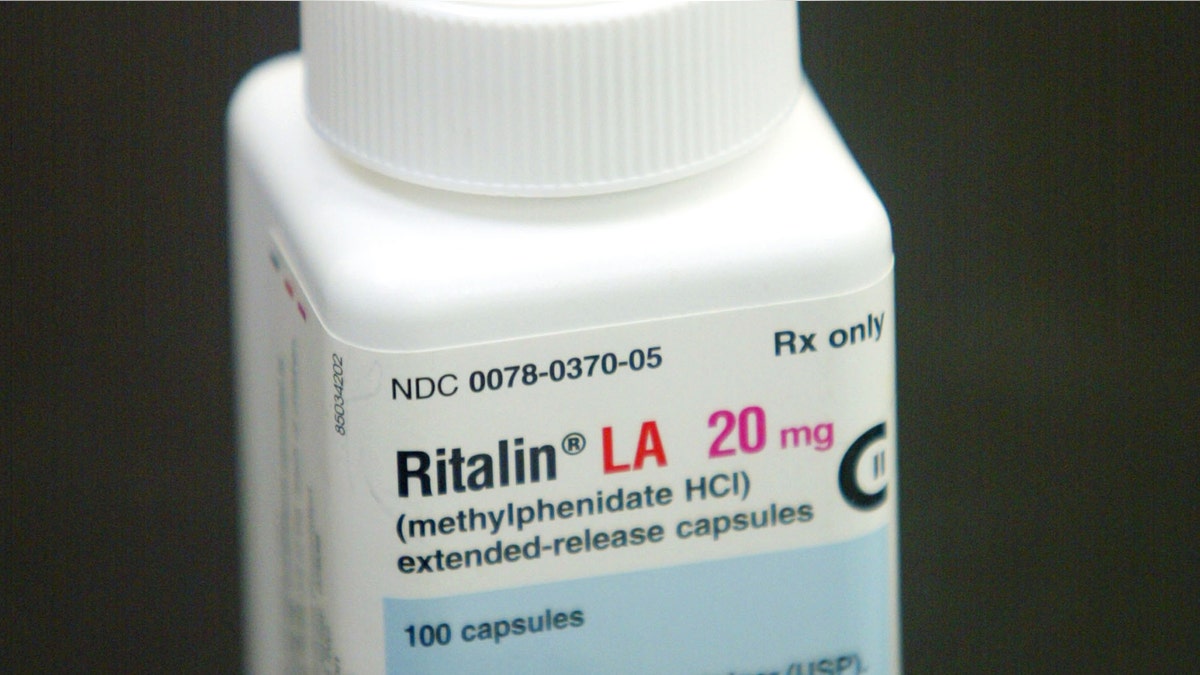
A bottle of Ritalin sits on the counter of the Post Haste Pharmacy And Surgical Store in Hollywood, Florida. (Photo by Joe Raedle/Getty Images) (2003 Getty Images)
Discouraging trends on kids and drug use shows many parents are not taking an active role in talking with their teens about the dangers of abusing prescription drugs like Ritalin and Adderall.
When teens were asked about the last substance abuse conversation they had with their parents, just 14 percent said they talked about abusing a prescription drug, said the report released Tuesday by The Partnership at Drugfree.org.
"For parents, it really comes down to not using the power they have because they don't think this is an immediate problem, meaning their own home, own neighborhood kind of thing," says Steve Pasierb, president of the partnership. "They believe that this is probably a safer way, not as bad as illegal street drugs."
By comparison, most teens — 81 percent — said they have talked about the risks of marijuana use with their parents. Almost the same number said they have discussed alcohol with their parents. Almost one-third said they have talked about crack and cocaine.
Some parents didn't see a significant risk in teens misusing prescription drugs.
One in six parents said using prescription drugs to get high is safer than using street drugs, according to the survey. Almost one-third of the parents said attention deficit hyperactivity disorder (ADHD) medications such as Ritalin or Adderall can improve a child's academic or testing performance even if the teen does not have ADHD.
For Tracey and Jeff Gerl, of Cypress, Texas, their son's drug abuse problem was a shock.
"We just didn't know," said Jeff. He and his wife had the "drugs are bad" talk with their son, Nick, and thought he got the message. They called the parents of friends when he said he was spending the night to make sure an adult would be home. They tried to get to know his friends. Despite their efforts, Nick started smoking pot at the age of 12.
In an AP interview, Nick said he and his friends often raided their parents' medicine cabinets for anything they could get their hands on — codeine, Xanax, Ritalin. Some kids, Nick said, would have "skittles parties," where the teens threw all the pills they poached from home into a big bowl, mixed them up and then took a few without knowing exactly what they were ingesting.
By 14, Nick's parents knew something was wrong. The day before he turned 15, they sent Nick to The Center for Success and Independence in Houston for 7 ½ months of substance abuse treatment. It wasn't easy on anyone in the family — Nick, his two younger brothers and his parents. Nick tried to escape twice, but made it through the program and has been sober now for a year.
"My family life is a lot better. I'm realizing there are fun things in life that I can do sober," said Nick, now 16. "I got a chance to get clean and I have my whole life ahead of me."
One in four teens in the study said they had misused or abused a prescription drug at least once. That's up sharply, a 33 percent increase, in the last five years. One in eight teens report misusing or abusing the drugs Ritalin or Adderall — stimulants prescribed to treat ADHD. Other national studies also have seen a rise inabuse numbers for these stimulants among teens.
The partnership's Pasierb says parents need to talk early and often with their children about the dangers of drugs, including prescription drugs. "They need to tell their children that this isn't healthy for you and it will break my heart if you do this."
Looking back, Tracey Gerl says she should have listened to her gut more when she first suspected Nick might be using drugs.
"If it doesn't seem right, it's not," said Gerl. "Don't ever be naive to think it's not my kid."
The partnership's study was sponsored by the MetLife Foundation. Researchers surveyed 3,884 teens in grades 9-12 with anonymous questionnaires that the youngsters filled out at school from February to June 2012. The teen sample has a margin of error of plus or minus 2.1 percentage points. For the adults, the sample was 817 for surveying conducted from August to October 2012, with a margin of error of plus or minus 3.4 percentage points.
Based in New York, The Partnership at Drugfree.org is formerly The Partnership for a Drug-Free America. The nonprofit group launched its new name in 2010 to position itself as more of a resource to parents and to avoid the misperception the partnership is a government organization.
Based on reporting by The Associated Press.
Follow us on twitter.com/foxnewslatino
Like us at facebook.com/foxnewslatino
